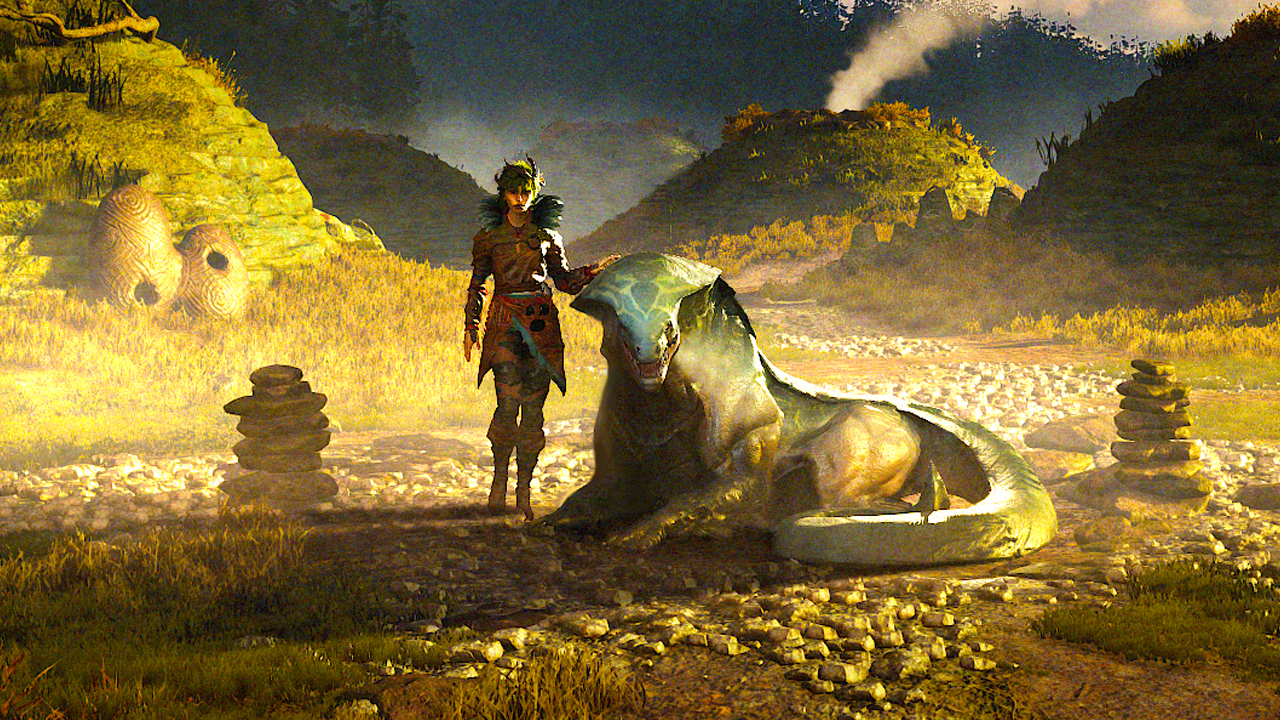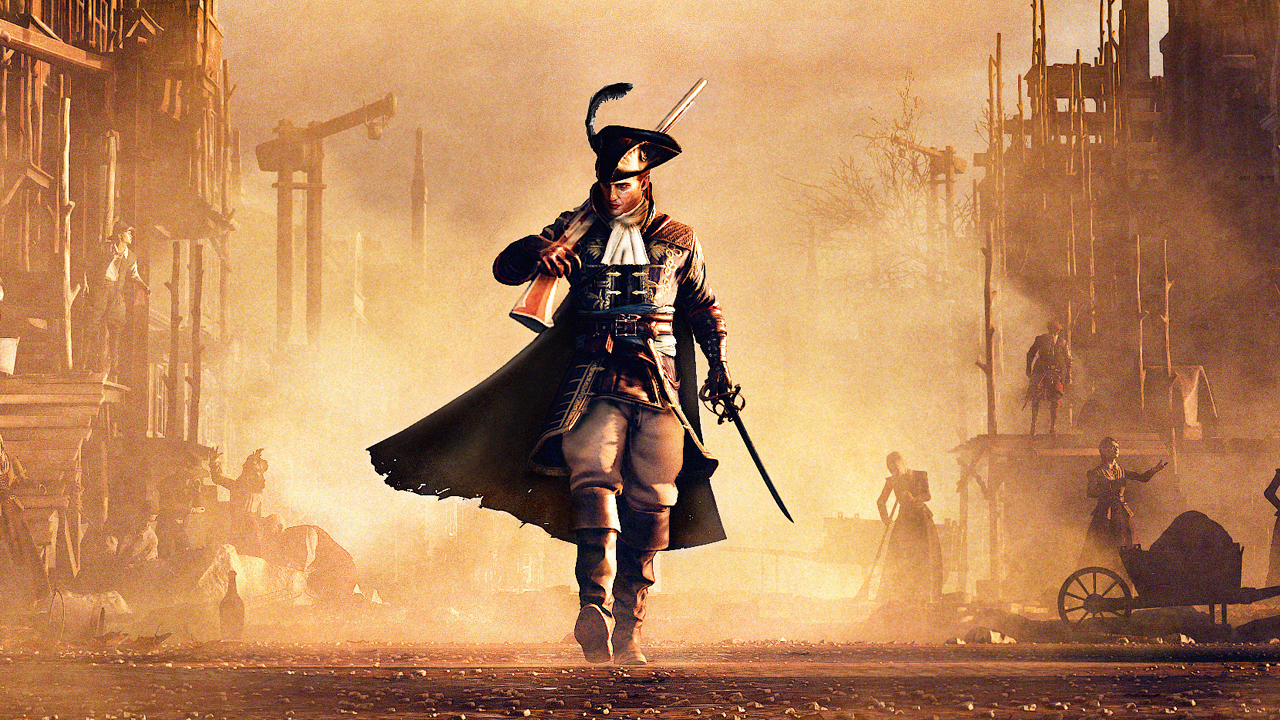Greedfall is the RPG that shows exactly what happens when you get rid of fetch quests and let story shine
Fetch quests are nowhere to be found in Greedfall - instead its focus on characters and interlinked quests takes centre stage and brings its world to life.
35 hours of gameplay. Around 80 quests. 0 fetch quests. What I’ve just outlined is the dream scenario for many gamers. Yet in Greedfall, the latest action-RPG from Spiders, it’s a reality.
No pressure, but the lives of hundreds of people are in your hands as you’ve been sent to a previously unheard-of island to find a cure for a disease ravaging the your country. Only thing is that the island isn’t exactly empty. Various factions vie for control over its rare resources, among them rich merchants, magical native inhabitants, and a cunning religious sect, all fighting, negotiating, or just trading insults. Stuck in the middle of this is you.
But you won’t be reduced to running errands to increase your reputation with each faction. Jehanne Rousseau, Spiders’ CEO, says that the developer really means it when it says “we didn’t want to have any fetch quests”. Instead Greedfall’s quests are rooted in character development and story. “We really wanted each quest to bring some lore elements,” Rousseau says, “to really be intricate with the rest of the story, so of course some people will probably ask you to create some object for them or to find something for them but [...] we have very strong narrative support, and every time it will make sense. No one will ask you to, you know, ‘kill me three birds’ or anything”. That sound you can hear? That’s the sound of thousands of tears of joy falling from gamers’ eyes.

By getting rid of that one RPG trope that tends to make gamers bury their heads in their hands, Greedfall is already focusing on keeping character-driven tales at its core. According to Rousseau, “most of the story comes from the characters [...] in terms of their own story, their own roles, their own ideals, and based on these characters the story emerges and comes from that. Quests come naturally when you have a strong background for each character.” Characters doesn’t just mean the simple NPCs that only give out one quest to make them look like they have more depth than a cardboard cut-out - instead, Greedfall has a range of companions for you to recruit. “Each companion has their own quest and their own story”, says Rousseau, which “allows us to have a more intimate feeling, a more realistic feeling”. As a newcomer to the island, you’re in a little bit over your head to start off with. Thankfully each faction’s companion can help you in your endeavours, letting you increase your reputation with each group as you two fight, explore, and possibly even elope together.
Goodbye fetch quests, hello nodal narration
Unlike with most RPGs, playing Greedfall isn’t just a case of ticking off a quest as soon as it’s done, consigning it to the pile to be forgotten. Greedfall uses a new tool called ‘nodal storytelling’ that remembers, well, everything. Imagine the game like a giant tree where each choice - or node - branches into different scenarios depending on the choices you make. “It allowed us to have a system based on consequences,” Rousseau says. “Each time you make a choice, we create in a very visual way the different consequences of this choice and all those things that are connected. We can visualise all the tree with all the branches. That’s what we call nodal, because each choice is a dot - and there are plenty of branches”.
All those choices remain with you throughout your playthrough, so if you’re the kind of person who scoops up all the sidequests before dealing with the main quest, you’ll probably be in a rather enviable position. Everything you learn during those side-quests can be used to complete other quests in a slightly different way. See, in addition to an emphasis on story and nodal narration, there’s another pillar Greedfall’s quest system rests on: negotiation.
Negotiate your way out of this
Just like in real life (or so I’m told) violence isn’t the only solution to your problems. Meet up with a faction before you take your quarrel to the battlefield, and you can try and talk your walk out of calamity. Just remember that knowledge is power. As well as using your social skills to negotiate to get factions on your side - your usual charisma, intimidation, or diplomacy kind of approach - you can also think back to what you’ve learned in your travels.
Weekly digests, tales from the communities you love, and more

The lore you’ll learn about from sidequests links everything together. When I ask her more about it, Rousseau says that “for example, during a side quest you can learn about the governor of another faction and learn her dirty secrets. You can use that later to influence her decision, saying ‘if you don’t want me to talk about that you should, you know, think again about that decision’”. Chatting away to someone is a good way to make new friends in game and in real life (apparently), but characters will pick up on a lot more than just the things you say them. “Choices you make during dialogue and gameplay - fighting people instead of using stealth to avoid combat, or using a lore element to convince people - will change their relationship to you than if you fight them”, says Rousseau. So pick your battles carefully.
So far Greedfall looks like it’s doing everything right. By giving players a feast of story-based quests that have characters at their heart, and then thinking about how all the quests impact each other, this RPG seems like it’ll offer a gourmet questing experience. Keep your fingers crossed - there’s no set release date yet, but with Greedfall on the horizon the future of RPGs will hopefully be a little brighter.
Eager to lose yourself in a story-rich world for a couple of (hundred) hours? Here’s the best RPG games you can play right now
While here at GamesRadar, Zoe was a features writer and video presenter for us. She's since flown the coop and gone on to work at Eurogamer where she's a video producer, and also runs her own Twitch and YouTube channels. She specialises in huge open-world games, true crime, and lore deep-dives.



